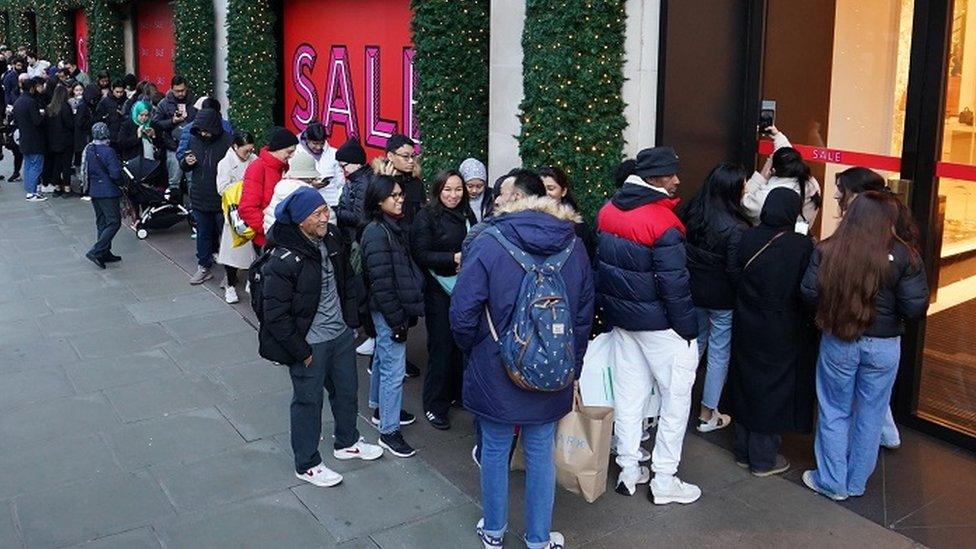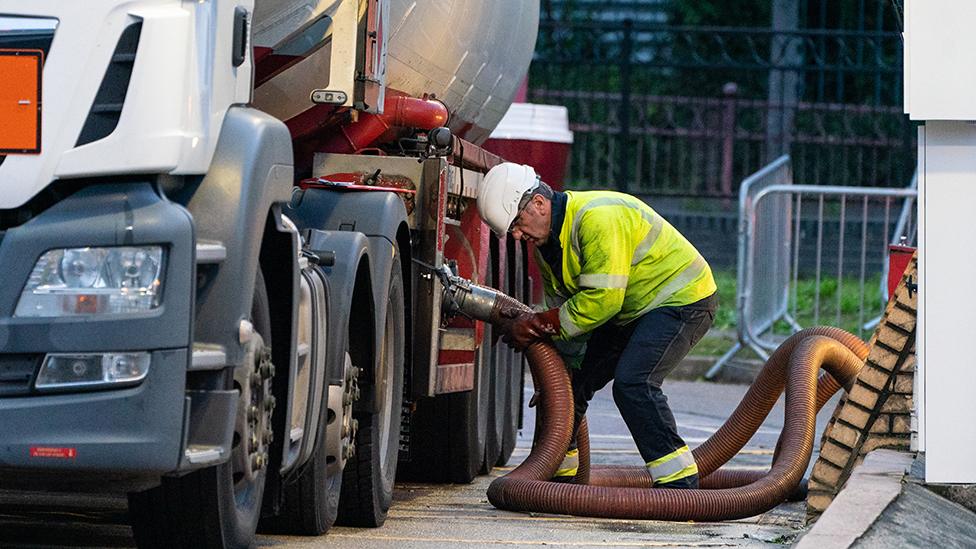Boxing Day sales: Spending predicted to fall
- Published

The post-Christmas sales may be getting into full swing, but research suggests shoppers will be spending less than they did last year.
Consumers are forecast to spend £3.7bn on Boxing Day, according to research for the VoucherCodes website, which is down 2.9% on a year earlier.
Early indications are that the number of shoppers visiting stores on Boxing Day is up slightly on last year.
However, Boxing Day sales are no longer seen as the major event they once were.
That is largely because of pre-Christmas events such as Black Friday, as well as the availability of early discounts online.
This year, major retailers such M&S, Next and John Lewis are not reopening their stores until 27 December.
Analysts say the rise in prices over the past year - which has squeezed households' incomes - means people are likely to be cautious in the sales.
"The Boxing Day sales provide shoppers with a last-chance opportunity to splurge on themselves for the year," said Anita Naik from VoucherCodes.
"However, this is now a luxury many people are currently refraining from as the nation continues to contend with inflated prices amidst the cost-of-living crisis, therefore it's no surprise that this year, fewer of us will be splashing out in the sales."
The VoucherCodes report, produced using research from GlobalData, external, predicts that the amount spent on every day from Christmas Day through to New Year's Eve will be lower than last year.
Overall, £13.5bn is expected to be spent over the week, down 3.8% from the year earlier.
By 3pm on Boxing Day, footfall among shoppers was up 2.3% compared with a year earlier, according to data from retail research firm MRI Software. This was largely driven by more people visiting High Streets and retail parks.
However, compared with 2019 levels, footfall was still down by about 20%.
"This suggests the continued rise of online shopping as many consumers may have started yesterday evening, and with Black Friday only a few weeks ago many will have grabbed their bargains back then," the company said.
Separate data from Mastercard indicated that spending between 1 November and Christmas Eve was up 2.6% from a year earlier.
However, Kien Tan, a senior retail adviser at PwC, told the BBC that many retailers still have "a lot more stock on their hands".
"The good news for you and me is there'll be bigger discounts post-Christmas," he said.
The popularity of the Boxing Day sales has been waning for some time, with Black Friday starting to become the bigger sales event. People are also more likely to spread their spending over the post-Christmas period.
"The changes in consumer behaviour over the Christmas shopping period that we've seen for the last decade will continue this year, with demand from shoppers steadily shifting away from Boxing Day to the three days between 27th and 29th December," said Diane Wehrle, chief executive at Rendle Intelligence and Insights.
Given the increase in shopping online, Ms Wherle says "it's no surprise that Boxing Day is less of an iconic day than in the past".
"For many consumers that do venture out, it is much more of a leisure trip, with the focus on dining out and the top up being the opportunity to browse the shops."
Related topics
- Published22 December 2023

- Published20 December 2023
